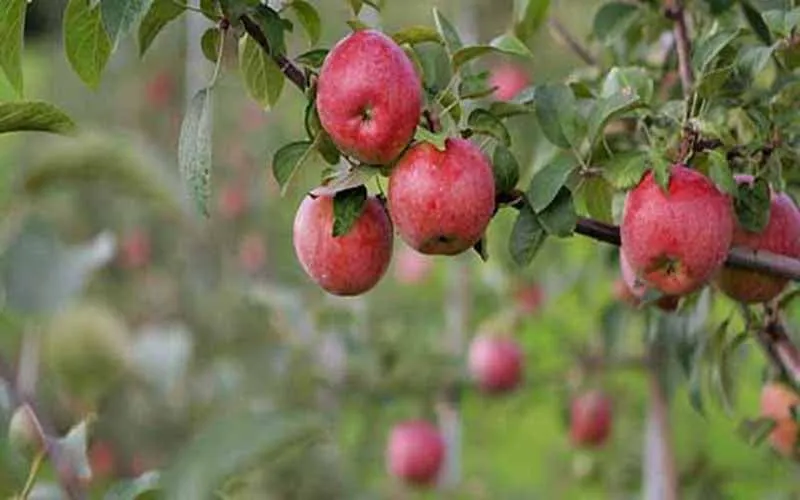Srinagar, Nov 14: Chairman of Kashmir Valley Fruit Growers Union, Bashir Ahmad Basheer, expressed deep concern over the influx of Iranian apples into Indian markets under the guise of Afghan imports through the Wagah Border.
A statement issued by the Union said that this development has exacerbated the existing fears of significant losses among Valley-based fruit growers.
“Initially optimistic that the sacred festivals in the country’s various markets would compensate for their losses, Valley fruit growers find their hopes shattered as Iranian apples flood the markets, causing a drastic drop in the rates of Grade “A” Kashmiri apples by over Rs. 600 per box,” Basheer said.
“A mere two weeks ago, Kashmiri apple boxes commanded prices ranging from Rs. 1000 to Rs. 1300 in Indian fruit markets. Now, due to the heavy flow of Iranian apples, the same boxes are being sold at a meagre Rs 800 per box, leaving growers with insufficient returns and eroding any hope of profit.”
This dire situation is particularly alarming considering that India is one of the world’s largest apple producers, with approximately 80% of Jammu and Kashmir’s rural population directly or indirectly dependent on this sector. The horticulture industry is regarded as the lifeline of the economy in Jammu and Kashmir (Union Territory).
The adverse impact extends beyond Jammu and Kashmir, affecting Himachal Pradesh and Uttarakhand as well. The large-scale influx of Iranian apples via the Wagah Border not only jeopardizes the fruit industry but also places small and marginal fruit growers in a state of mental agony.
The Chairman Fruit Growers emphasised the urgent need for intervention to address this crisis, safeguard the interests of local fruit growers, and protect the horticulture industry, which plays a pivotal role in the economic well-being of the region.
“The influx of Iranian apples disguised as Afghan imports poses a serious threat to the stability of the fruit industry in these regions, demanding swift and effective measures to alleviate the concerns of the affected growers.”







